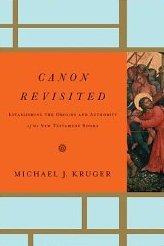 My Beth Moore posts gather the most visits to my site and nothing else is even close. Which is kind of funny since I initially did all that research for someone else’s website. Anyway, I recently received a very kind letter from a woman named Mary who had read my main post on Beth Moore and wanted to address some concerns she had. Now I do not know Mary, but the letter is very kind. While being well-intentioned, it also contains a number of common errors that are overwhelming our Christian churches these days. So, I want to use her letter as an opportunity to attempt to teach Mary and others like her (and perhaps you) to identify the problems with this type of reasoning. Errors that are being indoctrinated into us in our world that teaches us to “coexist.”
My Beth Moore posts gather the most visits to my site and nothing else is even close. Which is kind of funny since I initially did all that research for someone else’s website. Anyway, I recently received a very kind letter from a woman named Mary who had read my main post on Beth Moore and wanted to address some concerns she had. Now I do not know Mary, but the letter is very kind. While being well-intentioned, it also contains a number of common errors that are overwhelming our Christian churches these days. So, I want to use her letter as an opportunity to attempt to teach Mary and others like her (and perhaps you) to identify the problems with this type of reasoning. Errors that are being indoctrinated into us in our world that teaches us to “coexist.”
 This is a really long article, so I would recommend packing a lunch before we begin. Ready? Then let’s dive in. Mary begins:
This is a really long article, so I would recommend packing a lunch before we begin. Ready? Then let’s dive in. Mary begins:
I read your post on Beth Moore as a false teacher — and recognized myself in you. I was moved to write to you — not to attack or defend Beth Moore or you, but to tell you what I see in this. I don’t expect you to publish this comment, but I hope you find it useful (Mary).
Well Mary, I am publishing your comment! And I do genuinely thank you for taking the time to write and the obvious concern with which you have written to me. I hope you may likewise find my reply to you useful. I also hope you take this response in the love in which it is intended. It is so difficult to come across as loving when you are disagreeing with someone in writing.
I am 75 years old, having been a student of the Bible all my life and a devoted Christian for 65 years. (Mary)
Praise God! I can only wish I had become a student of the Bible as early in my life as you. It is with respect and trepidation that I will be trying to correct one of my elders in the faith. Yet, in the words of Paul to Timothy: “Let no one despise you for your youth, but set the believers an example in speech, in conduct, in love, in faith, in purity” (1 Timothy 4:12). So, I press on carefully.
In my 20′s I might have written what you wrote about Beth Moore, because I was trained in that way of thinking and understanding scripture and judging the rightness of other people — that there is a right way and a wrong way, and of course my understanding of scripture is the right way, because I would never accept the wrong way, right? 🙂 (Mary).
Now Mary, here is where we run into our first big problem. You appear to be implying here (and through the rest of your letter) that there is not a right way or a wrong way to understand Scripture. I find it so very interesting that you wrote me to tell me that I was wrong to write that others are wrong. The very act of your writing to me actually proves my position that there is a right and a wrong.
 If there is no right or wrong way, then there is actually no way at all. The words of the Bible have no real meaning if they cannot be determined to be right or wrong. When you wrote to me, you assumed that I would understand what you are communicating to me. You assumed that I would determine the right way to understand what you have written. It is no different when God communicates to us through his written word, the Bible. God had a meaning when He inspired it, and we should always strive to understand His meaning. Let’s take a simple example from the Bible:
If there is no right or wrong way, then there is actually no way at all. The words of the Bible have no real meaning if they cannot be determined to be right or wrong. When you wrote to me, you assumed that I would understand what you are communicating to me. You assumed that I would determine the right way to understand what you have written. It is no different when God communicates to us through his written word, the Bible. God had a meaning when He inspired it, and we should always strive to understand His meaning. Let’s take a simple example from the Bible:
But the angel said to the women, “Do not be afraid, for I know that you seek Jesus who was crucified. He is not here, for he has risen, as he said. Come, see the place where he lay. (Matthew 28:5-6).
This passage makes a number of truth claims that we must judge as to their veracity. Was Jesus really crucified? Had he really risen from the dead? Was there really an angel that spoken these words to Mary on that Easter morning? I do not doubt that you would answer a resounding “yes” to all 3 of my questions. Now, here is where the hard question comes in. If someone were to say that Jesus was not raised from the dead, are they wrong? Would you, Mary, judge the rightness of a person who believed there was no resurrection from the dead? Would it be appropriate to tell them they were wrong? Does it matter if someone were to wrongly teach that there was no resurrection? Absolutely! Let’s hear what the apostle Paul had to say about this:
And if Christ has not been raised, then our preaching is in vain and your faith is in vain (1 Corinthians 15:14).
 Now, you may object here and say that the issue of the resurrection is much bigger than the things I have identified as false teachings by Beth Moore. While that may be true, I chose this example to demonstrate the principle here. The underlying principle being that there absolutely, positively must be a right and a wrong way to understand the Scriptures. If we read the Bible and come to the conclusion that Jesus was not raised from the dead, our faith is in vain and we will die in our sins. Not only would our interpretation be wrong, but that error would have eternal consequences. We actually need someone to tell us we are wrong! It is the most loving thing someone could do for us! Let me say that again, because it gets lost so often. The most loving thing someone could do for us if we believe in a false God, a false Jesus, a false gospel, or other errors in our doctrine is to tell us we are wrong. It would be a hateful thing to not point out their errors and teach them about the real Jesus and the true, life-saving gospel. Now to tell someone they are wrong, we must first actually believe there is even a concept of right and wrong.
Now, you may object here and say that the issue of the resurrection is much bigger than the things I have identified as false teachings by Beth Moore. While that may be true, I chose this example to demonstrate the principle here. The underlying principle being that there absolutely, positively must be a right and a wrong way to understand the Scriptures. If we read the Bible and come to the conclusion that Jesus was not raised from the dead, our faith is in vain and we will die in our sins. Not only would our interpretation be wrong, but that error would have eternal consequences. We actually need someone to tell us we are wrong! It is the most loving thing someone could do for us! Let me say that again, because it gets lost so often. The most loving thing someone could do for us if we believe in a false God, a false Jesus, a false gospel, or other errors in our doctrine is to tell us we are wrong. It would be a hateful thing to not point out their errors and teach them about the real Jesus and the true, life-saving gospel. Now to tell someone they are wrong, we must first actually believe there is even a concept of right and wrong.
So I studied hard to be sure I had it right, feeling responsible to correct the errors of other people, graduating summa cum laud from a Christian college and spending many years in verse by verse study of the Bible (Mary).
Hurrah! Imagine for a moment that I completely flipped that paragraph around and we imagined a person named NotMary who writes:
So I never studied to be sure I had it right because there is no right or wrong. I felt no responsibility to correct the errors of other people because there is no such thing as an error. I dropped out of a Christian college and never read the Bible because it just does not matter what you believe (NotMary).
Would you cheer for NotMary? If there is no right or wrong way to interpret Scripture then NotMary’s experiences are just as useful as yours, the real Mary. And if you want to think really carefully about this, those two paragraphs above from Mary and NotMary say exactly the same thing if there is no right and wrong way to interpret what was written. Ridiculous, right? But that is exactly what the conclusion we must come to if there are no right or wrong ways to interpret what is written. The words lose all meaning. Of course, no one actually lives this way in the rest of their communication, we likewise should not think it is true when we read God’s communication to us in the Bible.
Then things happened that gave me deeper insights into scripture and my own faith in God (Mary).
Mary, here is where I would really like you to pause for a moment. You have just claimed that you have obtained deeper insights into Scripture. You are implying several important things:
- that the Scriptures have meaning,
- that the meaning can be understood, and
- that you have obtained a better understand of that meaning.
You have, in effect, admitted that at one point in your life you were wrong, but then changed your beliefs so they were right (or at least more right than before). If there is no right or wrong way to interpret Scripture, this claim of yours has no meaning. You cannot have a deeper insight, only a different insight. And, if you cannot judge other people’s concepts of right and wrong, on what basis could you even judge your own understanding of the Scripture to make the claim that you now had deeper insight? You could only claim that your views had changed, not whether they were better or deeper. You have made a value judgment, but you want to do that in the context of rejecting value judgments.
There is also an important value judgment contained in that last part of that statement. You write about obtaining a deeper insight into your own faith in God. How do you know that your faith is in the one true God? Seriously, how do you know? And does it even matter? Here in the great state of Idaho where I live, the dominant religion is Mormonism. These LDS people are typically wonderfully nice, intelligent, upstanding citizens. Many have studied the Scriptures and have a great faith in things they call “God” and “Jesus.” They believe that there are many gods, that the God of our planet used to be a man on another planet, that Jesus is the created spirit brother of Lucifer, and one day they may be exalted to become gods themselves (and that is just a tip of the iceberg). Mary, would you say that the LDS interpretation of Scripture is wrong? Would you say their faith in God is wrong?
Briefly, my oldest daughter was born with a significant handicap and limited intellectual ability. As she has lived her life, and is now 53 years old, I have seen the value in her life as she demonstrates love and faith, teaching others a deeper meaning of love — and of faith — even with her limited understanding. Before God, she is equal to the greatest scholar and will not be judged by Him for her lack of understanding (Mary).
I am sorry for your daughter’s handicaps, but I am even more pleased you see the value in her life! This may surprise you Mary, but I completely agree with your conclusion in this paragraph. Your daughter is not going to be judged by her lack of a detailed understanding of Christian theology. Just as I believe an infant can be saved by God’s work of regeneration in their lives to grant them faith, so too He can work that miracle in people like your daughter. It is no less of a miracle that they can come to repentance and faith than it is for me and for you.
And, I am sure you look forward to the day when your daughter is glorified in heaven and the effects of sin on her broken mind and body are removed. When she can freed of her limitations and have a better knowledge and a deeper understanding of Jesus and what he has done. All of us who are in Christ desire that! But to desire these things we must realize that there is a right knowledge of God and His work of salvation to be understood and even to be desired. There is right knowledge and wrong knowledge.
We also have Jesus’ parable of the talents in Matthew 25:15-30 that teaches that while we may not all have the same gifts, we must put to proper use the gifts we have been given. And, if we do not, there are consequences. If my knowledge and your own knowledge of the Scriptures was at the same level as your daughter’s would that be a good thing considering we have been given greater gifts in the particular area of intellectual ability? Similarly, if my 3-year old daughter’s knowledge of Scripture never progressed from what she knows today because she was never taught, it would be a tragedy (and a sin on my part!).

For though by this time you ought to be teachers, you need someone to teach you again the basic principles of the oracles of God. You need milk, not solid food, for everyone who lives on milk is unskilled in the word of righteousness, since he is a child. But solid food is for the mature, for those who have their powers of discernment trained by constant practice to distinguish good from evil. Therefore let us leave the elementary doctrine of Christ and go on to maturity (Hebrews 5:12-6:1).
We see in that passage the Bible chastises those who have remained immature in the faith and urges to press on to a mature doctrine.
I met other people who were devoted Christians but who understood key passages of scripture completely differently from the way I was taught. I was convinced I was right, they were convinced they were right (Mary).
How do you know they were devoted Christians? What does it even mean to be a “Christian”? I have many Mormon friends and relatives who say they are devoted Christians, and we disagree completely regarding what is taught in the Bible. We disagree on the nature of God, the Trinity, the nature of man, the way of salvation, the gospel, heaven, hell, judgment…I could go on and on. They are “devoted” in the sense that they pray regularly, attend church weekly, tithe, and do good for others. Are they “devoted Christians” if they have the wrong Jesus? Or are they merely devoted idolaters despite their claim to be Christians? I am convinced that I am right, and they are convinced they are right. Does it matter? Yes, with eternal consequences.
Who is the judge? God alone (Mary).
Agreed. But God has already declared His judgment in the Scriptures. For example, in Jesus’ own words we read:
For God did not send his Son into the world to condemn the world, but in order that the world might be saved through him. Whoever believes in him is not condemned, but whoever does not believe is condemned already, because he has not believed in the name of the only Son of God (John 3:17-18, emphasis mine).
That is a judgment of condemnation declared by God. And we, as Christians, must declare God’s judgment to others as a warning to them. We are not judging, but pronouncing God’s judgment. We are heralds of the king to bring both warning and good news. It is part of the great commission in Matthew 28:18-20 that we make disciples (students) who observe all that Jesus commanded. It makes no sense to make students if there is no right and wrong because there is nothing for them to learn and nothing to observe rightly.
I had been taught that these people were not even Christian because they had it wrong (Mary).
 Mary, I hope by this point is that you realize that there has to be a right and a wrong that defines whether or not someone is a Christian. And, it must go beyond a self-proclamation that one is a Christian. I can say I am a medical doctor, but I doubt you would trust me to do your surgery without seeing the credentials on the wall and some proof of my knowledge of medicine. My claim to be a doctor does not make me one. Neither does someone’s claim to be a Christian make them one.
Mary, I hope by this point is that you realize that there has to be a right and a wrong that defines whether or not someone is a Christian. And, it must go beyond a self-proclamation that one is a Christian. I can say I am a medical doctor, but I doubt you would trust me to do your surgery without seeing the credentials on the wall and some proof of my knowledge of medicine. My claim to be a doctor does not make me one. Neither does someone’s claim to be a Christian make them one.
The Biblical, historic Christian faith is founded upon a set of core beliefs. Beliefs that have been summarized in things like the Apostles, Nicene and Athanasian creeds. For example, the beliefs that there is only one God and that Jesus was God-in-flesh. Rejecting these beliefs means rejecting the Christian faith. Now, an infant or a person who is immature in the faith may not understand these concepts. However, it is the people who can know and understand, but reject the fundamental beliefs that are not Christians. Your daughter accepts by faith what she can comprehend. She does not reject the light that she has received.
Yet in our common love and trust in the Lord, we had a bond of faith. So I opened my heart to them and we shared our mutual convictions. Sometimes we just agreed to disagree, but we stopped arguing (Mary).
Again, I turn you to my Mormon friends and relatives. This is not an idle thought exercise as I have people I deeply love who are Mormons. We both profess a love and trust in the Lord Jesus Christ. However, what we mean by “Lord Jesus Christ” is two entirely different things. There is no common meaning to those words. Do I have a bond of faith with these professing “Christians”? We both have faith, but it is faith in entirely different things. Can I just agree to disagree and not worry about our differences? Absolutely not because I love them. God has made it clear in the Scriptures that if they continue worshipping a false god and putting their trust in a false gospel, they are already condemned (John 3:18). Jesus himself taught about people who would face eternal separation from God despite their claims they knew Jesus and did mighty works in his name:
Not everyone who says to me, ‘Lord, Lord,’ will enter the kingdom of heaven, but the one who does the will of my Father who is in heaven. On that day many will say to me, ‘Lord, Lord, did we not prophesy in your name, and cast out demons in your name, and do many mighty works in your name?’ And then will I declare to them, ‘I never knew you; depart from me, you workers of lawlessness.’ (Matthew 7:21-23).
They called Jesus Lord, but were not allowed to enter the kingdom of heaven. We are either Universalists and everyone goes to heaven, or there is some metric by which true Christians are identified.
We did not talk about “grace” much in my early years. I could tell you then that it meant “unmerited favor”, but I actually had little idea of what that meant. As I continued to study, I came to understand that the blood of Christ “keeps on cleansing” us as we walk in the light. That was light a light coming on. Then one day it dawned on me that I had been given to understand that God will forgive our sins — but if we have our doctrine wrong, we are in big trouble. That makes no sense (Mary).
Mary, you highlight a very common error here. The term “doctrine” has received a bad reputation recently, but it merely means a set of beliefs. In the same paragraph in which you essentially declare that doctrine is not important, you describe a lot of doctrine that you hold:
- The idea of grace meaning unmerited favor
- The blood of Christ
- Cleansing
- Walking in the light
- God
- Forgiveness of our sins
 Those are all part of your doctrine–your set of beliefs. Would someone be in “big trouble” if their belief in the forgiveness of sins is wrong? You bet! If they believed that forgiveness of sins came through faith in the Easter Bunny, as a ridiculous example. So, yes, if we have our doctrine wrong, we are in big trouble. Wrong God, wrong Jesus, wrong gospel, wrong Scriptures, and wrong understanding of sin equals wrong doctrine and big trouble.
Those are all part of your doctrine–your set of beliefs. Would someone be in “big trouble” if their belief in the forgiveness of sins is wrong? You bet! If they believed that forgiveness of sins came through faith in the Easter Bunny, as a ridiculous example. So, yes, if we have our doctrine wrong, we are in big trouble. Wrong God, wrong Jesus, wrong gospel, wrong Scriptures, and wrong understanding of sin equals wrong doctrine and big trouble.
Mary, you also continue to demonstrate that you actually believe there is a right way and a wrong way to understand Scripture since you are coming to a better understanding. Again, if there is no right way, all you could claim is that your beliefs changed, not that they improved.
Soon I began to notice that I had some ways of looking at scripture that also did not make sense (Mary).
Unfortunately to be consistent, it makes no sense for you to write that your way of looking at Scripture did not make sense. It was neither right nor wrong. Therefore it was neither logical or illogical, sensible or nonsensical. It was just an opinion of yours that changed.
Taking some passages as direct commands/instruction for today gave them different meaning from what the original readers could possibly have gleaned (Mary).
At this point, I am beating a dead horse, but by the “logic” that there is no right or wrong, arriving at a different meaning from the original readers is perfectly valid. The human authors could have had one meaning in mind when they wrote it, the original readers could arrive at a different meaning, and you and I could come to third and fourth meanings. No problem or big problem? God had a meaning that was right when He inspired the Scriptures. We want to discover that meaning. All others are wrong. I actual agree that we need to determine the correct, original meaning.
For example, the Bereans searching scripture and Paul’s instruction to Timothy to “study the scripture daily” (KJV) and that “all scripture is inspired by God and is profitable for doctrine, reproof, correction and instruction in righteousness” were all written BEFORE the Bible existed. Timothy had been studying scripture from infancy, but it must have been the old law he studied, because most of the New Testament had not yet been written and there was no compilation into a Holy Bible at that point (Mary).
Actually, at the time of Jesus the majority of the Bible did exist. 39 of the 66 books (59%) and roughly 76% of the total words of the Bible were complete. It was not as complete of a revelation as we have today, but is inaccurate to say the Bible did not exist. It existed, but in a different, less complete form. Not an inaccurate or wrong Bible, but an incomplete Bible. The Bereans were commended for searching the Old Testament Scriptures precisely because they were inspired by God. Jesus held the Jews responsible for rightly understanding the Old Testament Scriptures precisely because they bore witness to him:
You search the Scriptures because you think that in them you have eternal life; and it is they that bear witness about me, yet you refuse to come to me that you may have life. I do not receive glory from people. But I know that you do not have the love of God within you. I have come in my Father’s name, and you do not receive me. If another comes in his own name, you will receive him. How can you believe, when you receive glory from one another and do not seek the glory that comes from the only God? Do not think that I will accuse you to the Father. There is one who accuses you: Moses, on whom you have set your hope. For if you believed Moses, you would believe me; for he wrote of me. But if you do not believe his writings, how will you believe my words?” (John 5:39-47).
Jesus condemned the Jews for their incorrect understanding of the Scriptures. How much more condemnation will we face if we reject the additional light we have received through the later writings of the New Testament and its more clear revelation of Jesus as the Messiah?
Now, I want to circle back to your quote from 2 Timothy 3:16:
…“all scripture is inspired by God and is profitable for doctrine, reproof, correction and instruction in righteousness” were all written BEFORE the Bible existed (Mary).
 Actually, this word from Paul to Timothy was inspired Scripture as soon as it was written down the first time. Now, what we call the full Bible consisting of both the Old and New Testament may not have been completely recognized by the Christian church at that point, however that does not change the fact that it was already the inspired word of God. (As an aside, I recommend to anyone reading this far who is interested in this topic of New Testament Scripture to go read Dr. Michael Kruger’s wonderful book, “Canon Revisited”). Mary, I hope you can also see now that the idea of reproof, correction and instruction must be tied to the understanding that there is a right and a wrong way to interpret the Bible. Not to mention that doctrine is an important concept that is based upon our righty understanding of God’s revelation in the Scripture. We must embrace the idea that right doctrine is important and desirable!
Actually, this word from Paul to Timothy was inspired Scripture as soon as it was written down the first time. Now, what we call the full Bible consisting of both the Old and New Testament may not have been completely recognized by the Christian church at that point, however that does not change the fact that it was already the inspired word of God. (As an aside, I recommend to anyone reading this far who is interested in this topic of New Testament Scripture to go read Dr. Michael Kruger’s wonderful book, “Canon Revisited”). Mary, I hope you can also see now that the idea of reproof, correction and instruction must be tied to the understanding that there is a right and a wrong way to interpret the Bible. Not to mention that doctrine is an important concept that is based upon our righty understanding of God’s revelation in the Scripture. We must embrace the idea that right doctrine is important and desirable!
Using these passages as imperatives regarding the Bible is not exactly honest (Mary).
I am not sure what you mean here, because they are not really imperatives. Are you saying that we not all Scripture is inspired by God (or more accurately breathed out by God)? Are you saying that not all Scripture is profitable for doctrine, reproof, correction and instruction in righteousness? I am confused here because I doubt that this is what you meant.
I have no doubt that the Bible as we know it exists because God protected it over time from the violence of history and of evil men. But I have become convinced that we must study it in context if we are to understand its meaning for us today (Mary).
Agreed. What is interesting is that you came to my website to read about Beth Moore who regularly divorces her teaching from the context.
I really am trying to be brief here. So let me see if I can get to the bottom line of what I am trying to say (Mary).
I appreciate the time you have taken. And I am far less brief than you, Mary, so no worries.
We can focus so much on “getting it right” that we miss the point. And the “I’m right, you’re wrong” approach to Christianity will not build a sustaining faith in our children. They may know all the ways we are “right”, but they will not know why it matters — or the blessings and joy of a life in Christ, lived humbly before our God (Mary).
And this is where this line of thinking really falls apart. If it does not matter if we get it right, there is no point. Was Jesus merely a man or was he the God-man? Am I a sinner in need of a savior or a basically good person? Is there a coming judgment for sinners or does everyone go to heaven? Is there only one eternal god or are there countless gods and I can become one too? If it does not matter if we get the answers to these types of questions right, there is no point to miss. Then, there is no such thing as a definable “Christianity” and there is no thing and no one for my children to have a faith in. It is all becomes merely shifting sand.
Now, I may have a correct intellectual understanding of the Scriptures (“get it right), but reject these truths and therefore miss the point. But it would be silly to say I have an incorrect intellectual understanding of Scriptures (“get it wrong”), but get the point.
In our Bible study class this past year, we have been studying the book of Hebrews. As you, I am certain, well know, it is full of rich theology and, dare I say it, doctrine. The book of Hebrews makes it abundantly clear that it is in getting it right about the person and finished work of Jesus that provides us with assurance and allows our faith to remain strong in the face of trials and persecution. I want my children, and everyone, to know the real Jesus and the real gospel of salvation through repentance and faith in the finished work of Christ. I want their faith to be rooted in the clear understanding of God’s promises for our eternity and His unchangeable nature so we can trust those promises. Theology (our knowledge of God) matters! Doctrine (our set of beliefs) matter! What we put our faith in matters!
There is much more I could share, but just know that I am praying for you (Mary).
Thank you Mary for taking the time to write me and especially for your prayers.
I encourage you to think about what God’s mission for your life really is. Is it really about tearing apart the teachings of others and pointing out what you believe to be errors? (Mary)
My goal in life is to glorify God and enjoy Him forever. I do believe that one of my callings in Christ’s church is to teach others using the Bible. Teach at home to my family, teach in my local congregation, and teach through this website. And as 2 Timothy 3:16 points out, part of that teaching involves reproof and correction. I too require teaching and continue to learn from others as I strive to become a “man of God [who is] complete, equipped for every good work” (2 Timothy 3:17).
Or is it about the “abundant” life Jesus came to bring us — not prosperity in a material sense, but love, joy, peace and all the spiritual blessings we have in Christ Jesus? And the “everlasting” life we have in him as believers? When that is our focus, our families, our children, everyone we encounter — even enemies and people we disagree with — can see the blessings in a life lived in Christ (Mary).
 Why not prosperity in a material sense? There are countless “Christians” today like Joyce Meyer and Joel Osteen who teach that part of the abundant life Jesus wants to give us is material wealth and perfect health. All we need is enough faith and perhaps to sow our seeds of faith by sending them some money? Are they wrong Mary? Is that incorrect doctrine? Should we tell them they are believing and teaching wrongly? Should we warn others about these false teachers; these wolves in sheep’s clothing?
Why not prosperity in a material sense? There are countless “Christians” today like Joyce Meyer and Joel Osteen who teach that part of the abundant life Jesus wants to give us is material wealth and perfect health. All we need is enough faith and perhaps to sow our seeds of faith by sending them some money? Are they wrong Mary? Is that incorrect doctrine? Should we tell them they are believing and teaching wrongly? Should we warn others about these false teachers; these wolves in sheep’s clothing?
And what spiritual blessing do we have in Christ Jesus? How would we know what those are? By reading God’s Holy Word the Bible. Last week during our Bible study in the book of Hebrews we were working through the end of chapter 11. Here we read of people of faith like David who became a king and through faith conquered kingdoms (Hebrews 11:32-33). But we also read of people of faith being stoned, sawn in two and killed by the sword. How do our friends or enemies look at a person being sawn in two and see the blessings of a life in Christ? They cannot unless we tell them the good news of the gospel of Jesus Christ and the eternal promises ahead of us as we “run with endurance the race that is set before us, looking to Jesus, the founder and perfecter of our faith” (Hebrews 12:1-2).
I would love to visit with you more (Mary).
I would love to visit with you more also Mary. There is so much more that the Bible teaches on this subject of truth, the necessity of correct doctrine and the identification of false teachings and teachers.
Now, Mary, I know your letter did not stop here, but switched topics to discuss new, personal direct revelation from God. Perhaps someday I will address the rest of your letter, but I am about 5000 words in already and this seems like a natural stopping point.
With love in Christ Jesus our Lord,
Dale
 Strive for peace with whom? Well everyone. It says so right there. If you prefer another translation over the ESV like the NASB then it is “all men” while the KJV renders it as “all”. Simple right. Not really because of the phrase that follows: “and for the holiness without which no one will see the Lord.” We certainly should strive for peace wherever possible, but never when it requires us to sacrifice the holiness that is our calling in Christ Jesus.
Strive for peace with whom? Well everyone. It says so right there. If you prefer another translation over the ESV like the NASB then it is “all men” while the KJV renders it as “all”. Simple right. Not really because of the phrase that follows: “and for the holiness without which no one will see the Lord.” We certainly should strive for peace wherever possible, but never when it requires us to sacrifice the holiness that is our calling in Christ Jesus. Do not let the world condemn you for not seeking peace with them. Remember that we are at war. It is a spiritual war, but a war none the less. And there are people and powers that want nothing more for God’s children and God’s church to lay down our weapons and accept their peace terms. Peace terms that require us to turn our backs on God and the only gospel that saves. Rather than always pursuing peace, sometimes we must pick up the sword of the Spirit which is the Word of God and fight because the gates of hell shall not prevail against us!
Do not let the world condemn you for not seeking peace with them. Remember that we are at war. It is a spiritual war, but a war none the less. And there are people and powers that want nothing more for God’s children and God’s church to lay down our weapons and accept their peace terms. Peace terms that require us to turn our backs on God and the only gospel that saves. Rather than always pursuing peace, sometimes we must pick up the sword of the Spirit which is the Word of God and fight because the gates of hell shall not prevail against us!








